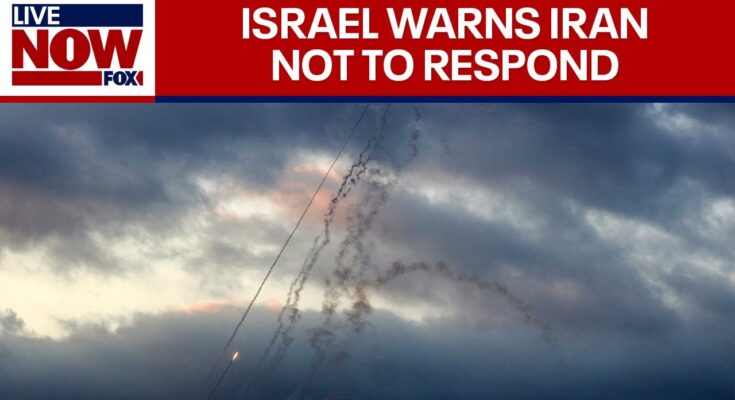.
Israel Warns Iran: A Strategic Move or Provocation?
In recent news, Israel has issued a warning to Iran not to respond to retaliation strikes. This warning comes amidst escalating tensions between the two countries, with Iran being accused of carrying out attacks on Israeli interests in the region. But what is the reasoning behind this warning, and what are the potential implications of such a move?
The Background of the Conflict
The conflict between Israel and Iran dates back to the Iranian Revolution in 1979 when the new Islamic government in Tehran began to call for the destruction of Israel. Since then, both countries have been engaged in a series of proxy wars and conflicts, with Israel viewing Iran as its greatest threat in the region due to its support for militant groups like Hezbollah and Hamas.
The Recent Escalation
The recent escalation in tensions between Israel and Iran can be traced back to a series of attacks on Israeli interests in the region. The most notable of these attacks was the drone strike on an Israeli-owned oil tanker in the Gulf of Oman, which Israel has blamed on Iran. In response, Israel carried out retaliatory strikes on Iranian targets in Syria, further escalating the situation.
Israel’s Warning to Iran
In light of these developments, Israel has issued a warning to Iran not to respond to any further retaliation strikes. This warning comes as Israel prepares for any potential escalation in the conflict and wants to send a clear message to Iran that it will not hesitate to defend itself against any attacks.
But why would Israel issue such a warning? One possible explanation is that Israel wants to avoid a full-blown conflict with Iran, as it could have far-reaching consequences for the region. By warning Iran not to respond, Israel may be hoping to prevent any further escalation in tensions and contain the conflict to avoid any unnecessary bloodshed.
The Implications of Israel’s Warning
The warning issued by Israel to Iran has significant implications for the region and the wider international community. On one hand, it could be seen as a strategic move by Israel to deter Iran from further provocations and protect its interests in the region. By issuing a warning, Israel may be signaling to Iran that it is prepared to defend itself and will not back down in the face of aggression.
However, the warning could also be viewed as a provocative move that risks escalating the conflict further. By explicitly telling Iran not to respond, Israel may be challenging Iran to do so, which could lead to a dangerous cycle of retaliation and counter-retaliation. This could potentially spiral out of control and drag other countries into the conflict, further destabilizing an already volatile region.
Conclusion
In conclusion, the warning issued by Israel to Iran not to respond to retaliation strikes is a complex and nuanced move that has significant implications for the region. While Israel may be trying to protect its interests and prevent further escalation in the conflict, the warning also risks provoking Iran and escalating tensions even further. It remains to be seen how Iran will respond to this warning and what the future holds for the conflict between these two long-standing rivals. Only time will tell if this warning will lead to peace or further conflict in the Middle East.



